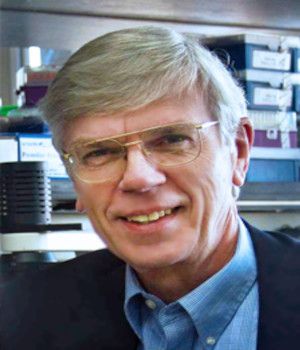More than two dozen people were honored for their many years of service to UW-Milwaukee at the annual Fall Awards ceremony on Oct. 25 at the Zelazo Center, including faculty and staff from the College of Letters & Science.
Our very own David Harold Petering, distinguished professor emeritus of chemistry and biochemistry, was awarded the Ernest Speights Plaza Award for his accomplishments and years of service: 1971-2021.

Colleagues describe David Petering as a critical leader in helping the university reach the highest national ranking of Research 1 in 2015. His own research made a major contribution to this status. Petering’s studies focused on the biochemical effects of toxic heavy metals in the environment, metal containing drugs and essential trace metals on biological systems. With his students and collaborators, Petering published 196 papers in journals and 48 papers in books and monographs, including 38 invited reviews. A 2020 Stanford University study ranked him among the top 2% of researchers in his field. A tireless supporter of broader UWM research efforts, Petering served for 29 years as director and principal investigator of two major interinstitutional centers of the National Institute of Environmental Health Sciences. Working with Jeanne Hewitt (UWM School of Nursing), Jerry Resler of the Milwaukee Journal Sentinel, and Mayor Tom Barrett, Dr. Petering led the successful effort to establish the school of public health at UWM. He collaborated with Professors James Cook and Guilherme Indig in the formation of the Milwaukee Institute for Drug Discovery, an interdepartmental center focused on discovering new chemical therapies for major diseases. In 1996, Petering established an environmental health science program for middle and high school students, funded by a series of National Institutes of Health grants. This program, involving a number of UWM faculty and staff, has provided tens of thousands of students in the Milwaukee area, many of them low income and underrepresented, with the opportunity to do scientific inquiry in the classroom.